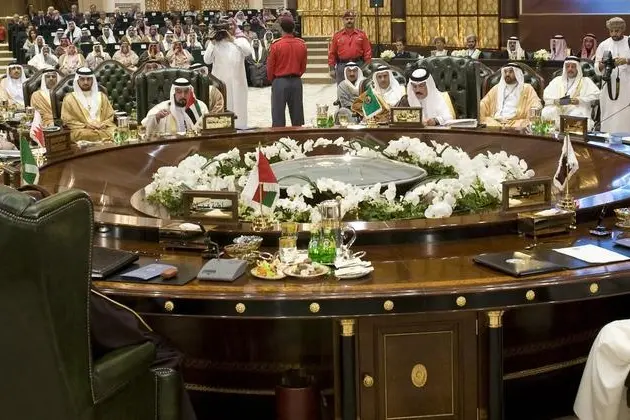PHOTO
Tuesday, Mar 28, 2017
Dubai: Arab leaders are meeting in Jordan from Wednesday for their 28th ordinary annual summit. Their decisions are also expected to be “ordinary” and similar to positions taken during previous high-level gatherings, Arab political analysts said.
The two-day Arab summit, which is to be held in the Dead Sea region south of Amman, is expected to discuss the issues of the Arab world, including the Palestine situation, the ongoing conflict in Syria and Yemen, threats of terrorists groups and relations with Iran.
“I don’t think the summit’s resolutions will be different, in terms of substance, from previous summits’ decisions,” said Amman-based analyst Uraib Rentawi.
“Even on the Palestinian question, the meeting will reconfirm earlier positions. The day after the summit concludes, Arab differences will continue as they were [before the summit],” he told Gulf News.
Rentawi explained that Amman has exerted all efforts to make the summit a distinguished meeting in terms of arrangements, preparations and the number of leaders expected to attend. However, “is the Arab system under the [current] Arab situation, mature enough to take drastic measures vis-a-vis the crises that are threatening the Arab region? There is no single indicator that this is the case”, he said.
Other analysts said the Arab League is too weak to be efficient.
“It can’t make action, nor reactions,” said Jeddah-based political scientist Wahid Hamza Hashim. He criticised the Arab League saying it is just a body for “prestige, meetings and unnecessary high expenses.”
Nevertheless, analysts defended existence of the Arab League as a bloc, but pinned the problem with the members.
The Arab League “is a reflection of the reality of the Arab countries and is not a reflection of its own entity,”
Mohammad Ezz Al Arab told Gulf News from Cairo.
Cairo-based Arab League, he said, “reflects the problems and the crises of the Arab countries. It is an organisation among countries and not above countries,” as the case with the African Union and other grouping bodies in other regions. In the past, Arab summits were raising the motto of “achieving Arab unity”. Nevertheless, at present, the main concern is to preserve the national skeleton of the Arab country, said Ezz Al Arab.
Internal strife in some Arab countries, including Libya, Yemen and Syria are among the topics on the agenda of Jordan’s summit.
Syrian President Bashar Al Assad was not invited to participate in the Arab summit. He is the only Arab leader who was not invited after differences in positions of Arab countries. Already Damascus’s membership in the Arab League has been suspended since 2011 over failure to end the violence caused by the brutal government crackdowns on protests calling for political reforms.
Some in the bloc support the Syrian regime, while some others support the opposition. Some consider the Syrian opposition as terrorist groups, but some other countries support them.
“The best solution was not to invite both Syrian parties, because if you invite one party and not the other, this will blow up the meeting,” Rentawi said.
Other issues on the table of the Arab summit include economic, social and development issues. Leaders are also expected to discuss the interference in Arab countries’ internal affairs, and efforts to make the Arab region free from nuclear weapons, analysts said.
Press reports raised different scenarios on the outcome of the summit, including a unified position by the Arab leaders over the Palestinian cause to be conveyed to the new US administration.
However, analysts have cast doubt on those assertions. The reports are more “like a marketing advertisement for the summit. It is a propaganda that will end with the conclusion of the summit,” said Hashim.
Moreover, even if the Arab summit decided to talk to Washington in one voice, they have to take into consideration that the US administration is not a one-man show and it takes decisions through alliances and agreements with different lobbies, he added.
“America believes only in pressure policy and power policy ... International politics is a struggle for power,” said Hashim.
Other analysts shared the same reservations on the reports.
Planned visits by both the Jordanian King Abdullah and Egyptian President Abdul Fattah Al Sissi to Washington were decided before the summit, and they are not related to the outcome of the Arab summit.
By Jumana Al Tamimi Associate Editor
Gulf News 2017. All rights reserved.





















